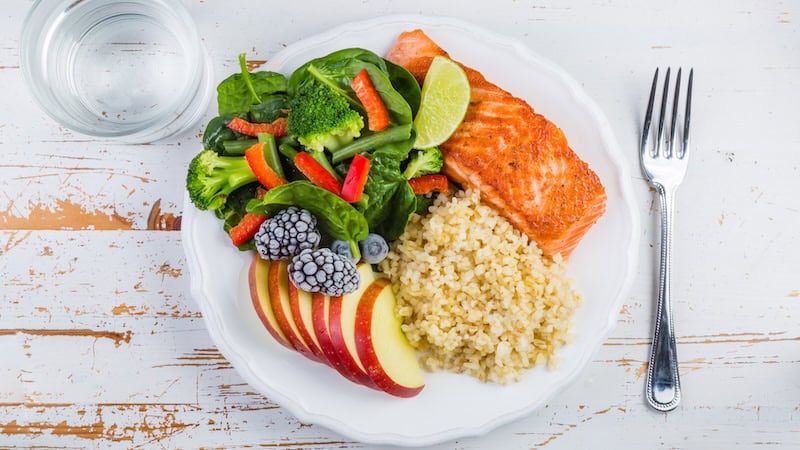These days, people eat big meals and snack all the time. Portion control has become one of the most useful but little-used ways to stay healthy. You don’t have to stick to tight diets or give up all of your favorite foods. Instead, you just need to know how much your body needs to feel full without going overboard.
Managing your weight and portions
One of the best things about controlling portions is that it can help you lose weight. A lot of people have problems with overeating, not because they eat bad foods, but because they eat more than their bodies need. You can enjoy different foods while staying within a healthy calorie range if you watch how much you eat. It is a long-term plan that doesn’t depend on hardship but on balance.
Better absorption of nutrients and digestion
Controlling your portions can also help your body digest food better and absorb nutrients. Your digestive system has to work harder than it should when you eat too much, which can make you feel bloated, uncomfortable, and slow. Eating in balance helps your stomach and intestines break down food quickly, which makes it easier for your body to receive vitamins and minerals.
Encourages Eating With Awareness
One more benefit of portion control is that it makes you more aware of what you’re eating. You are more likely to eat slowly and notice when you are hungry or full if you pay attention to the size of your servings. This stops people from mindlessly snacking and emotional overeating, which are usually caused by stress, boredom, or bad habits instead of real hunger.
Having steady energy levels all day
Controlling portions is another way to keep energy levels fixed. When you eat big meals, your energy levels often go up and down, leaving you tired or unable to concentrate. Eating in balanced amounts gives your body and brain steady food, which keeps you alert, focused, and creative.
Health Benefits in the Long Run
Long-term health problems like fat, high blood pressure, heart disease, and type 2 diabetes are linked to eating too much. Limiting your portions can help your heart, blood sugar, and cholesterol levels while also easing the stress on your most important systems. For a long time, this easy habit keeps you from getting major health problems.
Controlling portions does not mean going without food
A common misunderstanding is that portion control means having small meals that don’t fill you up. In fact, it lets you eat a small amount of your best foods. This method is more realistic and long-lasting than limiting diets because you don’t have to give up certain foods; instead, you just eat them in smaller amounts.
Having good effects on mental health
Controlling your portions can also help you feel and think better about food. You can escape feeling guilty, regretful, or stuck in the loop of upset eating if you know how to control your amounts. This gives you more confidence, makes food choices less stressful, and helps you live a better life.
Lifestyle and Money Advantages
Portion control is good for more than just your health. When you eat the right amount, you waste less food, save money, and be more likely to cook at home, which easily leads to better choices. Portion control isn’t just a change in food; it’s also a change in how you live your life.
In conclusion
One of the easiest and most effective ways to improve health and well-being is to watch how much you eat. It has many benefits, such as helping you lose weight, handle food better, keep your energy stable, and avoid getting diseases in the long run. You can enjoy food as both nourishment and pleasure without overindulging if you practice mindful eating and serve yourself the right amount.
Frequently Asked Questions (FAQs)
1. What is portion control and why is it important?
Portion control is the practice of managing how much food you eat at one time. It is important because it helps prevent overeating, supports healthy digestion, maintains steady energy levels, and reduces the risk of weight gain and related health conditions.
2. Does portion control mean I have to give up my favorite foods?
Not at all. Portion control is not about restriction but moderation. You can still enjoy your favorite meals and snacks, but in smaller, balanced amounts. This allows you to satisfy cravings while keeping your diet healthy overall.
3. Can portion control help with weight loss?
Yes, portion control is one of the most effective strategies for weight loss. By eating smaller amounts, you naturally reduce calorie intake without needing to follow extreme or restrictive diets. Over time, this helps you achieve and maintain a healthy weight.
4. How can I start practicing portion control at home?
You can begin by using smaller plates, serving reasonable amounts of food, and paying attention to your body’s hunger and fullness cues. Cooking at home also makes it easier to control portion sizes compared to oversized restaurant servings.
5. Is portion control suitable for everyone?
Yes, portion control is beneficial for people of all ages. Whether you want to manage your weight, improve digestion, or simply eat more mindfully, portion control is a sustainable habit that can support a healthier lifestyle.
References
-
Centers for Disease Control and Prevention (CDC). Healthy Eating for a Healthy Weight. Available at: https://www.cdc.gov/healthyweight/healthy_eating/
-
Harvard T.H. Chan School of Public Health. The Nutrition Source – Healthy Eating Plate & Portion Control. Available at: https://www.hsph.harvard.edu/nutritionsource/healthy-eating-plate/
-
National Institute of Diabetes and Digestive and Kidney Diseases (NIDDK). Choosing Healthy Meals as You Get Older: Use the Plate Method. Available at: https://www.niddk.nih.gov/health-information/weight-management/choosing-a-healthy-diet
-
Mayo Clinic. Portion Control for Weight Loss. Available at: https://www.mayoclinic.org/healthy-lifestyle/nutrition-and-healthy-eating/in-depth/portion-control/art-20045464
-
American Heart Association. Healthy for Good: Eat Smart. Available at: https://www.heart.org/en/healthy-living/healthy-eating/eat-smart




